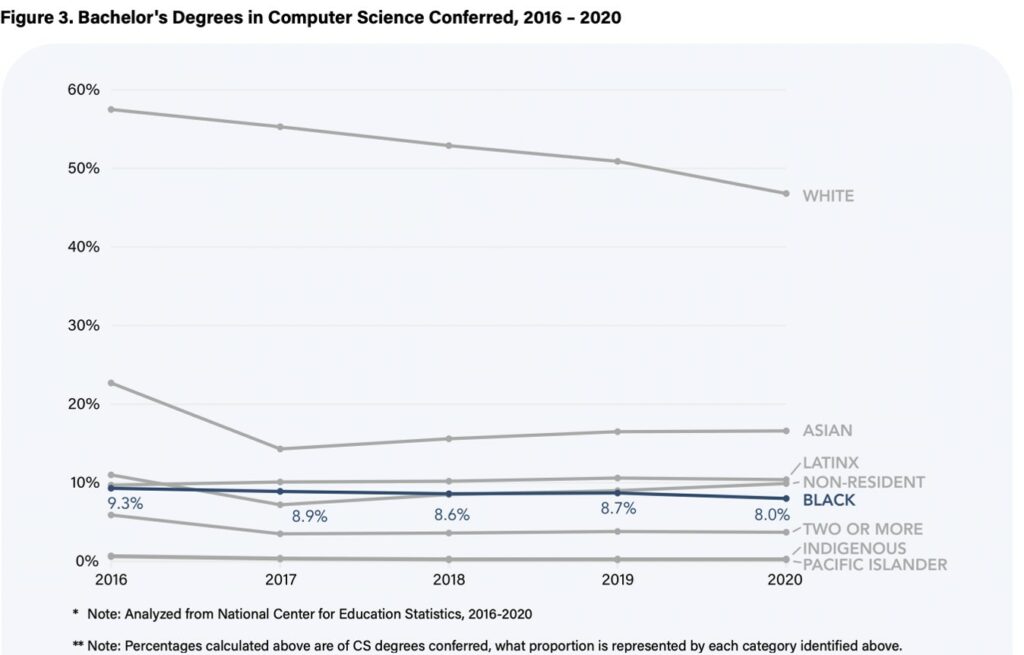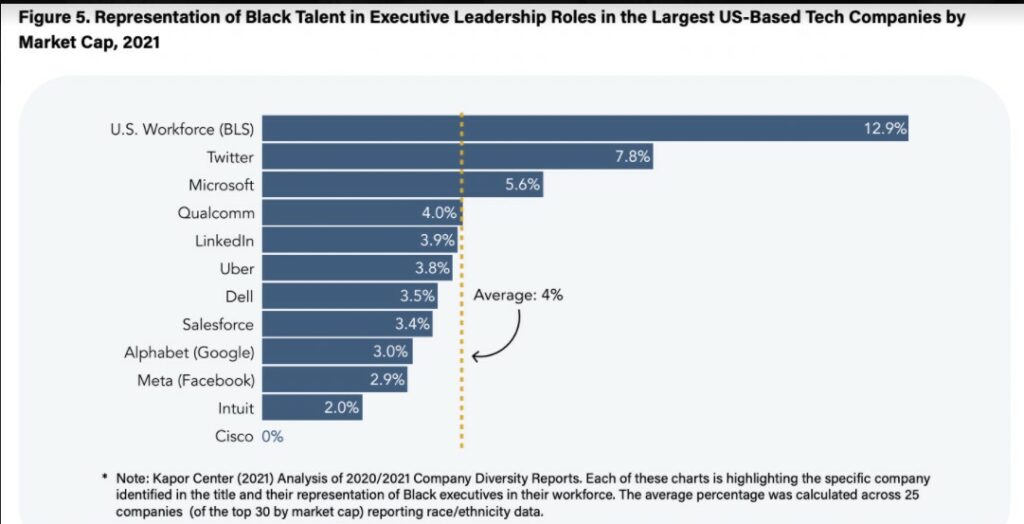
*Despite years of lofty commitments and massive pledges to diversify the tech industry, not only has progress not been made but in some cases, previous gains have been undone, according to a new report from the non-profit Kapor Center and the NAACP.
“Unfortunately, it didn’t shock me,” Rachel Goins, Director of Implementation at the Kapor Center and a co-author of State of Tech Diversity: The Black Tech Ecosystem, told The Plug.
Key Insights
· The current share of Black talent in technical roles has increased just 0.6 percent since 2018.
· Fewer Black students are earning computer science degrees than six years ago.
· The report suggests major changes in the private and public sectors to fundamentally change the system so that Black people are truly represented in the tech workforce.
In 2018, the Kapor Center released its Leaky Tech Pipeline Report highlighting the ways there are systemic barriers that block Black people from getting into tech at every point of the pipeline: pre K-12, higher education, the tech workforce and tech entrepreneurship.
This new report shows how those leaks have not been plugged. The current share of Black talent in technical roles has increased just 0.6 percent since 2018 — less than a percentage point.
OTHER NEWS ON EURWEB: Netflix Loses 200K Subscribers! – Collapse A Warning Sign for Stocks | VIDEO

Fewer Black students now are earning computer science degrees than six years ago. The proportion of Black students receiving computer science degrees decreased from nine percent to eight percent from 2016 to 2020, while the overall share of computer science degrees earned increased.

People often think the issues with the talent pipeline are with Black people themselves and their deficiencies, Goins said.
“Folks saying things like ‘Oh, Black kids just aren’t interested in STEM or computer science and we know for a fact that that is not true,” she continued.
The report found that funding inequities in secondary and postsecondary education, lack of access to preparatory Advanced Placement classes in high school and inadequate broadband infrastructure all are obstacles for students.
In 2020, HBCUs — which represent just three percent of U.S. colleges — were responsible for graduating 10 percent of Black computer science majors, according to the report.

Get the rest of this article by Mirtha Donastorg at The Plug
We Publish News 24/7. Don’t Miss A Story. Click HERE to SUBSCRIBE to Our Newsletter Now!





